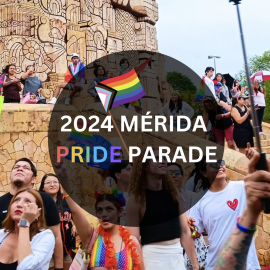Education
Dr. David Schwarzkopf on Why Travel Prepares Students For Their Professional Lives
Dr. David Schwarzkopf is an Associate Professor of Accountancy at Bentley University. Dr. Schwarzkopf received his undergraduate degree in German from Harvard, an MPA focused on business and government relations in science and technology from the Kennedy School of Government at Harvard, and his Ph.D. in business from the University of Connecticut. He plans several yearly trips for students through our WorldStrides Capstone programs, including a recent trip to Chile.
We asked Dr. Schwarzkopf a few questions about his experience with WorldStrides Capstone programs and the benefits of international travel for MBA students.
WorldStrides: Tell us about the latest program you traveled on with WorldStrides—where did you go, what did you study there?
Dr. David Schwarzkopf: The full-time MBA programs at Bentley University use WorldStrides to help with different aspects of our five yearly field trips. One of these annual trips is domestic; the other four take place outside the U.S.
The latest non-U.S. program for which we called on WorldStrides’ services was a trip to Santiago, Chile. The visit was part of our Bentley MBA program, an intense 11-month curriculum for students with at least 5 years of work experience. The 25 students on the trip represented 15 different countries and a mix of previous work backgrounds—ranging from not-for-profit management to architectural design to IT consulting to engineering.
Our purpose in visiting Chile was to look at entrepreneurial activity in a growing economy—from both the urban and rural perspectives, and also from the viewpoint of stakeholder support networks. WorldStrides was particularly helpful in arranging visits for us to focus on urban innovation in Santiago, including Start-up Chile, the country’s government-funded effort to make Santiago a hub of international entrepreneurial activity.
WorldStrides: What are some of the things that made the strongest impression on your students?
Dr. Schwarzkopf: One never knows what will impress any particular student on any particular field visit. For this cohort, what came through clearly was the openness of the people running Start-up Chile, as well as the entrepreneurs in the organization, in talking about their ideas and their challenges. Too often students hear about success stories in entrepreneurship without learning about the grinding details of refining a ‘good idea’ into a product or service, let alone finding funding for a tentative launch into the public. The entrepreneurs gave us both the highs and the lows of their efforts.
WorldStrides: How do these trips prepare your students for their professional lives?
Dr. Schwarzkopf: Why do we (or why does any institution) undertake a trip like this? We as educators work under the notion that it’s a big world out there and not everyone thinks alike—even if many businesses face highly similar problems. We firmly believe that it is important for our students to see how local conditions affect global enterprises. Yes, the world is increasingly connected and many, if not most, businesses must conduct their affairs globally. But business still happens someplace. That is, the conditions prevailing in Santiago have an effect on those employees and executives that may be different from the effects experienced in Sarasota or Seville. We need our students to understand those cultural and local-economic effects in order to better serve society.
WorldStrides: What challenges, if any, do you see with sending these types of programs abroad?
Dr. Schwarzkopf: Being 25 individuals with varied backgrounds, the students look at any situation from 25 different lenses. One has to fight the urge to ‘unite’ these perspectives into one, easy lesson. The point, we have discovered, is not to bring everyone into a unified agreement on how matters stand in, say, Santiago or in the area of entrepreneurship. Rather, the point is to raise each individual’s awareness of how his or her perspective may need to be altered, given an improved understanding of local culture, history, and economics.
For an educator, this is a difficult step to take. There is no set answer and in fact, there is no easy answer. There is simply a new way of looking at things that each individual student needs to come to. The professor’s role is to help the individual in that development—to show the individual what his or her views and biases were before the encounter with the new situation and to explore how those views can change given the experience.
For this reason, we do not talk about our students ‘solving problems’. Instead, we tell them they need to ‘address issues’. We firmly believe that the value of educating leaders lies in having them realize that the significant issues the world confronts do not have answers—the best we can do is to advance understanding and action, all the while being aware that the situation we thought we were addressing is changing even as we try to address it.
WorldStrides: What advice would you give others who are thinking about traveling with their students?
Dr. Schwarzkopf: Maybe the best way to begin is to think about what you want to accomplish with international travel. Yes, the world is a fascinating place, but there are intriguing things to discover close to home. (One of our best trips was to Dalton, Georgia, in the northwest corner of the state, where we saw companies, industry groups, economic development agencies, and community colleges work together to improve a terrible unemployment situation.) Remember, of course, that for non-U.S. students, the U.S. is an international destination.
So first, have a clear idea of why you want to travel and how the trip fits your curriculum. Understand what the location you choose can bring to your students—why that location is important. This should help you to determine whether the location has to be one of the popular ones. (Can your students learn as much from Cambodia as from China?) And, of great importance, what will you do after the trip—that is, does the trip just serve as a really exciting break from the rest of the students’ program or is it integrated into the material that follows after the group returns? Graduate students are particularly wary of ‘one-off’ adventures and would like to see some connection between their travel activities and the curriculum that follows those activities.
Learn more about WorldStrides Capstone programs.
Related Articles

The 2024 WorldStrides Student Photo & Video Contest Gallery
Dr. David Schwarzkopf is an Associate Professor of Accountancy at Bentley University. Dr. Schwarzkopf received his undergraduate degree in German from Harvard, an MPA focused on business and governm...

Girl Scouts: Costa Rica Tour
Dr. David Schwarzkopf is an Associate Professor of Accountancy at Bentley University. Dr. Schwarzkopf received his undergraduate degree in German from Harvard, an MPA focused on business and governm...

2024 Mérida Pride Parade
Dr. David Schwarzkopf is an Associate Professor of Accountancy at Bentley University. Dr. Schwarzkopf received his undergraduate degree in German from Harvard, an MPA focused on business and governm...

Rise Up, Take Action: How to Support the LGBTQIA+ Community
Dr. David Schwarzkopf is an Associate Professor of Accountancy at Bentley University. Dr. Schwarzkopf received his undergraduate degree in German from Harvard, an MPA focused on business and governm...


